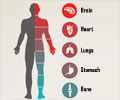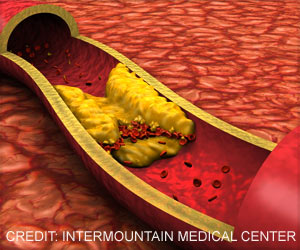New study findings indicate that mental stress took a significantly greater toll on the heart and life than physical stress.

The participants underwent standardized physical and mental stress tests to see if their hearts had ischemia (reduced blood flow), which can be a trigger for cardiovascular events. Then the researchers followed them for four to nine years.
Among the study participants who experienced ischemia during one or both tests, this adverse reaction to mental stress took a significantly greater toll on the hearts and lives of the patients than did physical stress.
They were more likely to suffer a nonfatal heart attack or die of cardiovascular disease in the years that followed.
The new findings underscore the results of an earlier study that evaluated the relationship between risk factors and heart disease in 24,767 patients from 52 countries.
It found that patients who experienced a high level of psychological stress during the year before they entered the study were more than twice as likely to suffer a heart attack during an average follow-up of five years, even when traditional risk factors were taken into account.
Advertisement
Furthermore, the cascade of reactions to stress causes inflammation in the blood vessel, fosters blood clotting, and impairs the function of blood vessels, all of which promote heart attacks and strokes.
Advertisement
The researchers are now investigating the impact of a stress-reducing program called SMART-3RP (it stands for Stress Management and Resiliency Training-Relaxation Response Resiliency Program) on the brain as well as biological factors that promote heart attack and stroke.
The program is designed to help people reduce stress and build resilience through mind-body techniques like mindfulness-based meditation, yoga, and tai chi. Such measures activate the parasympathetic nervous system, which calms the brain and body.
Source-Medindia















